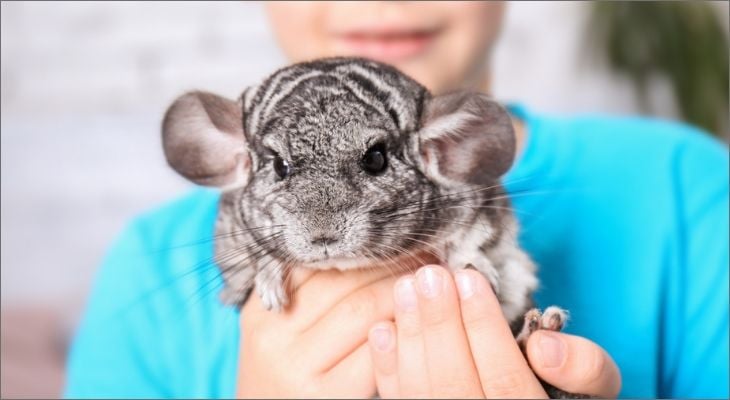
Chinchillas are playful, loveable, and amusing pets. If you want yours to remain in your family for long, you should ensure that it has a good diet. Chinchillas require a lot of attention due to their playful nature; therefore, it is best to have supervised playtime with yours if you want to create a strong bond. Chinchillas love chewing; hence, you should always ensure that toxic plants, electrical cords, and all breakable items are out of your pet’s reach. Here is how you can take care of your pet chinchilla
Bathing and Grooming
Unlike other mammals, chinchillas do not take water baths. Instead, these intriguing animals take dust baths. A water bath might strip their natural oil, which always helps in the regulation of their body temperature, and protection of their skin. They only bath in volcanic dust, which you can purchase at most pet shops, or from chinchilla breeders. You can place a bowl containing some dust in your chinchilla’s cage every day. You will enjoy seeing it roll and play in the dust. Ensure that you remove the bowl after every bath to prevent contamination of the dust.
Feeding
A pet chinchilla mostly feeds on chinchilla pellets and high-quality grass hay. However, if you are experiencing difficulties in finding chinchilla pellets, you can always substitute them with a guinea pig or rabbit pellets. You can also give your pet small amounts of fresh green vegetables daily. You should give your chinchilla water in a bottle that is placed outside its cage. Ensure that you change the water, and clean the bottle daily to prevent the growth of harmful bacteria.
Health Concerns With Chinchillas
If you own a chinchilla, these are some of the common health problems that you should be aware of:
Overgrown Teeth
Most chinchillas have overgrown teeth, which can cause serious damage if left untreated. Common symptoms of overgrown teeth include excessive drooling, change in eating habits, and diarrhea. Your vet can confirm if your chinchilla’s teeth are overgrown.
Heat Stroke
Chinchillas cannot stand excessive hot temperatures of over 80*F. When the weather is hot and humid, you can use a ceiling or room fan to cool the room. You can also place several bottles of frozen water in the chinchilla’s cage to cool it.
A well-taken care of chinchilla can live for almost twenty years, despite that the average lifespan chinchillas is ten years. Take good care of your pet chinchilla and you can look forward to a long, healthy life.